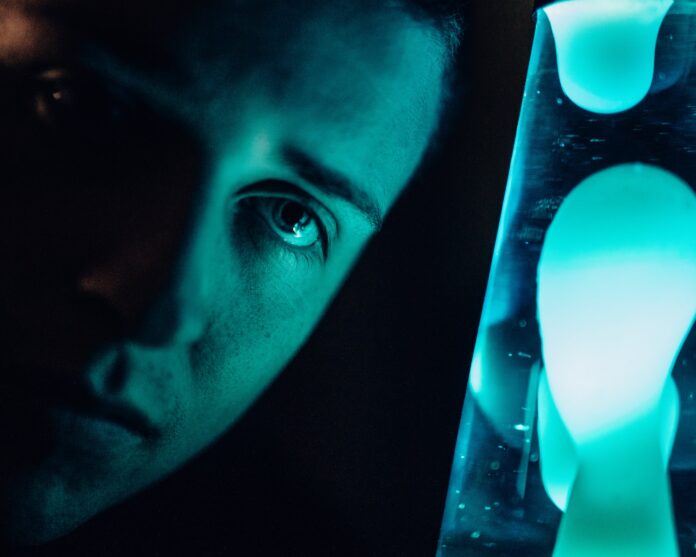
Anyone who enjoys being kept up to date on the latest health advances and treatments will know that medical professionals and scientists are becoming increasingly concerned about the dangers of blue light from digital screens on our health.
This is a very valid concern and research over the past decade or so has indicated that the more time one spends on digital screens, the more likely one is to experience health issues as a result.
So, what exactly are the dangers of blue light and in which ways does this affect your health? This article will discuss everything you need to know.
We are spending more time as each year passes on digital screens

You only have to think back to a decade or 2 ago to understand how we are spending more time than ever before on digital screens.
Most people now not only work on laptop or desktop computers but they also regularly enjoy looking at their tablets and smartphones for work or entertainment purposes.
Additionally, the world is fast becoming a digital and non-paper one, with forms, administrative work, and files now being largely digital.
2020 has also seen the devastating Coronavirus pandemic, which has forced many of us to work from home and attend virtual meetings on Zoom, Skype, and other digital meeting platforms.
We have also been forced to reduce our social interaction and we now like to be entertained by watching TV and movies on larger digital screens.
Blue light from digital devices can have a detrimental effect on your health

There are 2 main kinds of blue light: that which comes from the sun in a natural form, and blue light emanating from digital screens, whether they be smartphones, TVs, tablets, laptops and more.
Blue light that comes from the sun is not detrimental to our health. It helps us to remain awake and alert during the day and, when the sun goes down, it means that we begin to feel more tired and calm.
The problem with digital blue light is that it is artificial. Too much blue light from screens can cause us to experience a number of eye issues. These can include eye strain, dry eyes, red or irritated eyes and problems focusing on screens.
In severe cases, blue light can increase your risk of developing eye disease later on in life, including cataracts and macular degeneration. In its worst form, these eye diseases can result in blindness and can cause permanent damage.
Of course, blue light doesn’t stop there when it comes to health issues. Over-exposure to blue light can mean that you are more prone to experiencing back ache, chronic headaches, neck and shoulder pain and migraines.
When you spend too much time in front of screens and are exposed to too much blue light as a result, this can also affect your circadian rhythm and your ability to have a good night’s sleep.
This is because blue light inhibits the production of melatonin, a naturally-occurring hormone in the body that is secreted in higher volumes in the evenings to prepare us for sleep.
Under normal circumstances, when our melatonin production is not disrupted by blue light, we begin to feel progressively sleepy, tired, calm, and relaxed as the evening goes on. This is all conducive to great sleep and helping the body to rest in the best way possible.
When our melatonin levels are inhibited due to blue light, we do not feel tired or ready to go to bed. Even if we force ourselves to lie in bed, we won’t be able to fall asleep easily and may only have 1 or 2 hours of sleep the entire night. These few hours of sleep will not be good quality sleep and we will wake up feeling tired, groggy, and drained the next morning.
This has a knock-on effect the next day. Poor quality sleep means that we are not as productive as we should be and cannot perform optimally at work or with our studies.
If left unchecked, chronic insomnia can have a negative impact on our immune systems and put us at greater risk of contracting infections and colds.
No one enjoys being sick on a regular basis and blue light can therefore have a negative impact on our quality of life.
What can I do to prevent myself from suffering from health conditions due to blue light exposure?

It is clear that blue light can affect our health in many different ways. This is a concern to many people who are aware of its effects, as well as doctors and scientists who know that blue light can cause more damage than we think.
So, is there anything that can be done to prevent your health from suffering? Well, fortunately, you don’t have to decrease your daily screen time to protect your health, as long as you use 1 or more good quality blue light blocking products.
Ocushield (www.ocushield.com) is recommended by many eye doctors and medical professionals for protection against blue light.
Their blue light blocking screen filters are particularly popular and can be fitted onto most laptop, desktop, tablet, and mobile phone screens.
You could also try out their great blue light blocking glasses which should be worn any time you work at your computer or look at your smartphone. It is important to wear these glasses in the evenings when the effects of blue light are at their greatest.











